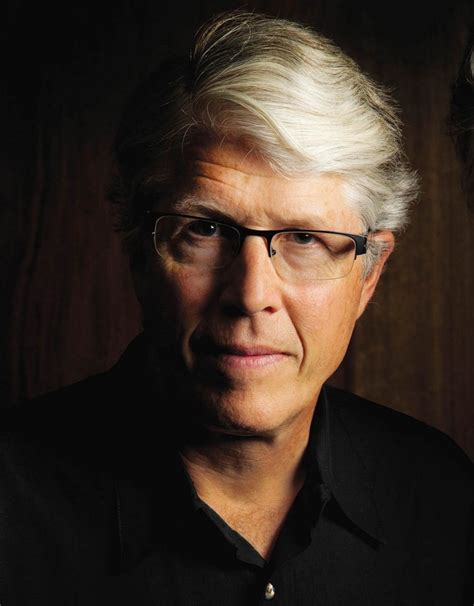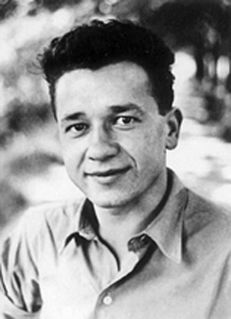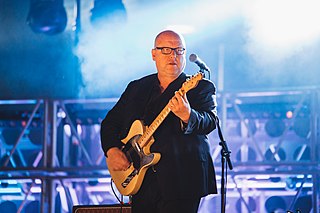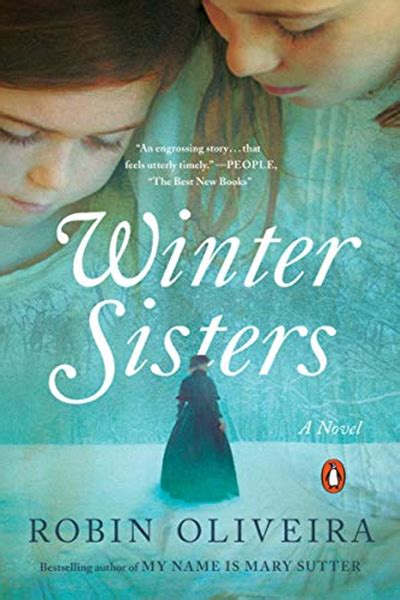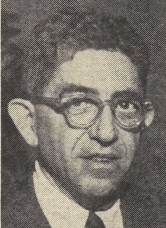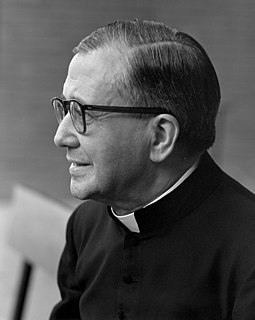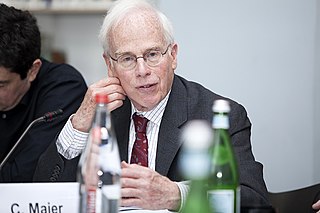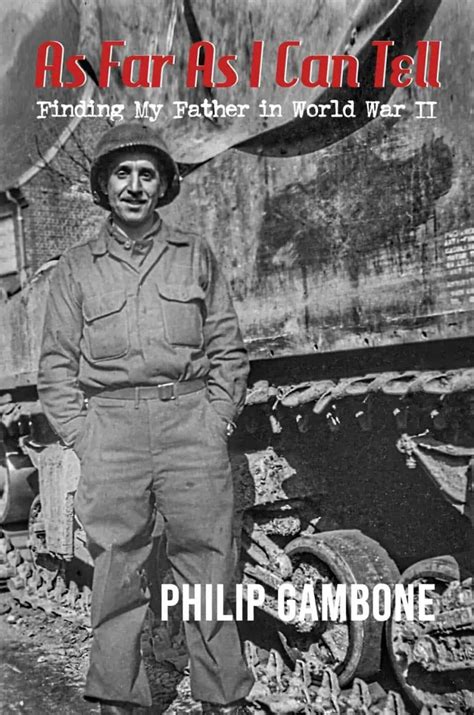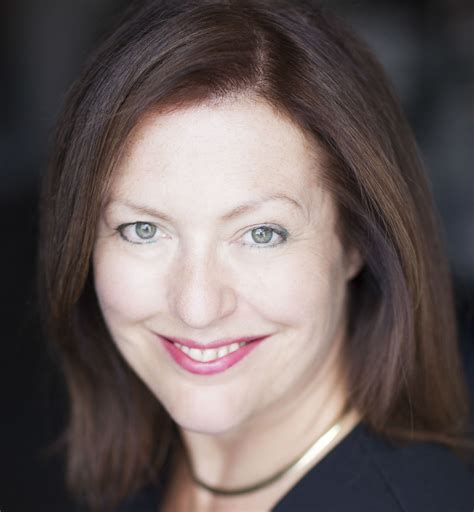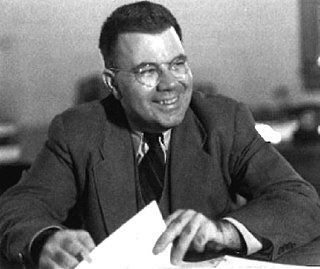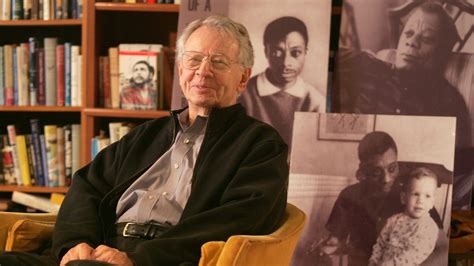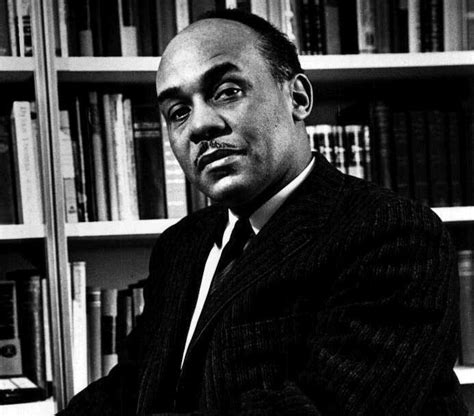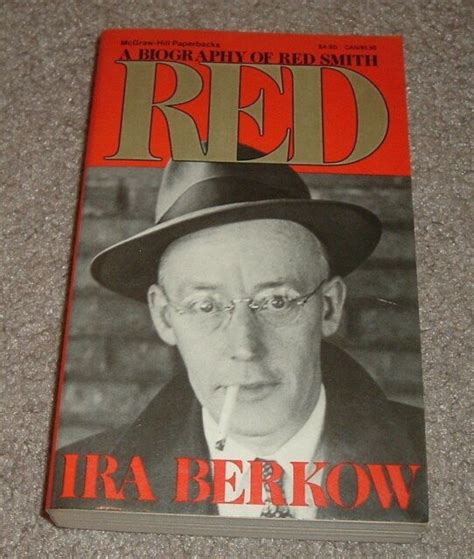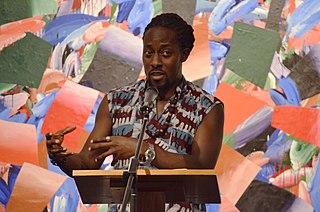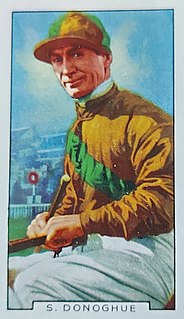Top 985 Prose Quotes & Sayings - Page 16
Explore popular Prose quotes.
Last updated on April 16, 2025.
People often ask me why my style is so simple. It is, in fact, deceptively simple, for no two sentences are alike. It is clarity that I am striving to attain, not simplicity. Of course, some people want literature to be difficult and there are writers who like to make their readers toil and sweat. They hope to be taken more seriously that way. I have always tried to achieve a prose that is easy and conversational. And those who think this is simple should try it for themselves.
Translated literature can be fascinating. There's something so intriguing about reading the text second hand - a piece of prose that has already been through an extra filter, another consciousness, in the guise of the translator. Some of my favorite writers who have written in English were doing so without English being their first language, so there's a sense of distance or of distortion there, too. Conrad. Nabokov. These writers were employing English in interesting ways.
Steve Forman strafes the south Florida scene with Boca Knights, an outrageously funny mystery novel with a raft of offbeat characters and prose that moves trippingly off the pen. His main man, Eddie Perlmutter, ex-Boston cop attempting semi-retirement in Boca Raton like a fish trying to retire out of the water, is a character for the ages. Carl Hiaasen, watch your back.
I've seen a lot of patriots and they all died just like anybody else if it hurt bad enough and once they were dead their patriotism was only good for legends; it was bad for their prose and made them write bad poetry. If you are going to be a great patriot i.e. loyal to any existing order of government (not one who wishes to destroy the existing for something better) you want to be killed early if your life and works won't stink.
Without touching my subject I want to come to the moment when, through pure concentration of seeing, the composed picture becomes more made than taken. Without a descriptive caption to justify its existence, it will speak for itself - less descriptive, more creative; less informative, more suggestive - less prose, more poetry.
What's impossible not to notice, though - it's all around us - is the diminution of American prose: How pedestrian it has become. Pick up any short story and listen to its voice, the tedious easy vernacular that mistakes transcription for realism. This would display an understandable pragmatism if it were a pandering to common-denominator readers; but it is, in fact, a kind of hifalultin literary ideology, the less-is-more Hemingway legacy put through an up-to-the-minute industrial blender.
There was a f**king review in f**king Melody Maker [of the first BOSSANOVA single, 'Velouria'] - 'Sounds like someone's been taking singing lessons'. Like, motherf**king A! I am the singer. Who do sing SONGS. It's like I never sang before; like I was - I don't know - reading PROSE on my previous records and now I sing. EXCUUUUUUSE me for singing
There’s a reason humans peg-out around eighty: prose fatigue. It looks like organ failure or cancer or stroke but it’s really just the inability to carry on clambering through the assault course of mundane cause and effect. If we ask Sheila then we can’t ask Ron. If I have the kippers now then it’s quiche for tea. Four score years is about all the ifs and thens you can take. Dementia’s the sane realisation you just can’t be doing with all that anymore.
Once in a rare while, you get to read a story of such breathtaking beauty and intelligence that you remember why you love to read. The Anatomy Lesson is just such a novel. In stunning prose, Nina Siegal animates Rembrandt's first masterpiece, spinning a deeply affecting tale of love, loss and redemption as she reveals the secrets of the human soul. It is a gorgeous literary page turner of immense sympathy and elegance, equal in artistic lan to its inspiration. Brava!
She would only point out the salvation that was latent in his own soul, and in the soul of every man. Only connect! That was the whole of her sermon. Only connect the prose and the passion, and both will be exalted, and human love will be seen at its height. Live in fragments no longer. Only connect, and the beast and the monk, robbed of the isolation that is life to either, will die.
This involves more than I can discuss here, but do it. Read the writers of great prose dialogue-people like Robert Stone and Joan Didion. Compression, saying as little as possible, making everything carry much more than is actually said. Conflict. Dialogue as part of an ongoing world, not just voices in a dark room. Never say the obvious. Skip the meet and greet.
I've always believed that poetry must speak of realities as least as complicated as those spoken of in prose. I've read books of poems, even single poems, which are, for me, at least the equivalent of a short story or a novel. Martin Amis, in an interview with Saul Bellow in the early eighties, quotes Bellow asking, "Why not address 'the mysterious circumstance of being', say what it's like to be alive at this time, on this planet?" This has been and still is my ambition.
If you know that everything comes from the mind, don't become attached. Once attached, you're unaware. But once you see your own nature, the entire Canon becomes so much prose. It's thousands of sutras and shastras only amount to a clear mind. Understanding comes in midsentence. What good are doctrines? The ultimate Truth is beyond words. Doctrines are words. They're not the Way. The Way is wordless. Words are illusions. . . . Don't cling to appearances, and you'll break through all barriers. . . .
I've been writing poems since I was in the Navy - to Rosalynn. I found I could say things in poems that I never could in prose. Deeper, more personal things. I could write a poem about my mother that I could never tell my mother. Or feelings about being on a submarine that I would have been too embarrassed to share with fellow submariners.
Like Molière's M. Jourdain, who spoke prose all his life without knowing it, mathematicians have been reasoning for at least two millennia without being aware of all the principles underlying what they were doing. The real nature of the tools of their craft has become evident only within recent times A renaissance of logical studies in modern times begins with the publication in 1847 of George Boole's The Mathematical Analysis of Logic.
A book is maybe about 350 pages, and the prose allows for readers to get a glimpse into the internal lives of the characters. A screenplay is 120 pages, and it's all dialogue and action. The pacing of films is different, the structure is often different, and the internal lives of the characters must come across through the acting. Movies are just a different experience than reading - so it just depends on what an individual prefers.
I assure you, my children, that when a Christian carries out with love the most insignificant everyday action, that action overflows with the transcendence of God. That is why I have told you so often, and hammered away at it, that the Christian vocation consists in making heroic verse out of the prose of each day. Heaven and earth seem to merge, my children, on the horizon. But where they really meet is in your hearts, when you sanctify your everyday lives.
The question now becomes about defining your terms. What is literature? Unless we allow it to encompass the oral tradition from which it grew, which means taking it back to Homer and beyond, it demands the written word - poetry and prose. [Bob] Dylan is no slouch at the written word, both in its own right, and transcribed from his lyrics, which have often been acclaimed as poetry and may well stand up as such. But that is not his métier.
Arnold Rampersad's stunningly revealing biography has, at long last, unveiled-in magisterial prose-the very complex and vulnerable man behind Ralph Ellison's own masks and myths. One of the nation's most brilliant writers emerges as all the more fascinating precisely because he was so very human. Painstakingly researched and compellingly written, Ralph Ellison is a masterwork of the genre of literary biography.
With a profound first-hand knowledge of participants, encompassing linguistic competence, and engaging prose, Padraic Kenney recreates the simultaneously serious and playful currents of East Europe's overthrow of repressive state socialism. What an invaluable guide to the elusive exhilaration that motivated the actors and captivated all of us who followed the transformation with such hope! We can appreciate neither the ebullience of 1989 nor the disappointment with the quotidian reality that followed without understanding Kenney's 'carnival.'
An argument is made that there are just too many question marks about the near future; wouldn't it be better to wait until things clear up a bit? You know the prose: "Maintain buying reserves until current uncertainties are resolved," etc. Before reaching for that crutch, face up to two unpleasant facts: The future is never clear and you pay a very high price for a cheery consensus. Uncertainty actually is the friend of the buyer of long-term values.
James Baldwin had an unrivaled understanding of politics and history and, above all, the human condition. His prose is laser sharp. His onslaught is massive and leaves no room for response. Every sentence is an immediate cocked grenade. You pick it up, then realize that it is too late. It just blows up in your face. And yet he still managed to stay human, tender, accessible.
Unlike prose writing, the strange process of writing with pictures encourages associations and recollections to accumulate literally in front of your eyes; people, places, and events appear out of nowhere. Doors open into rooms remembered from childhood, faces form into dead relatives, and distant loves appear, almost magically, on the page- all deceptively manageable, visceral, the combinations sometimes even revelatory.
I fear I have not one good word to say this fair morning, though the sun shines so encouragingly on the distant hills and gentle river and the trees are in their festive hues. I am not festive, though contented. When obliged to give myself to the prose of life, as I am on this occasion of being established in a new home I like to do the thing, wholly and quite, - to weave my web for the day solely from the grey yarn.
There are some simple maxims which I think might be commended to writers of expository prose. First: never use a long word if a short word will do. So, if you want to make a statement with a great many qualifications, put some of the qualifications in separate sentences. Third: do not let the beginning of your sentence lead the reader to an expectation which is contradicted by the end.
Clyde Phillip Wachsberger's delightful memoir about tending beds of flowers as compensation for a lonely middle age only to find unexpected romance along the way is a sweet reminder that, as he puts it, 'anything can happen in a garden.' In prose that balances candor with perfect courtesy, he charms us with the message that keeping a garden with a beloved companion, this most ephemeral of all the arts, can bring us the most enduring joys and pleasures.
Nobody brings ancient history and archaeology to life like Adrienne Mayor. From the Russian steppes to China, and from Roman Egypt and Arabia to the Etruscans, she leads the reader on a breathtaking quest for the real ancient warrior women reflected in myths--their daring, archery, tattoos, fine horses, and independence from male control. The book's rich erudition, communicated in sparkling prose and beautiful illustrations, makes it a riveting read.
I don't speak any languages well enough to make an expert assessment on writing in translation, but since I'm interested in awkwardness in prose, I find I like the way translated texts can sometimes acquire awkwardness in the process of translation. There's a discordance translation can create which I think is sometimes seen as a weakness but which I think can be a really interesting aspect of the text.
During the Second War, the U.S.O. sent special issues of the principal American magazines to the Armed Forces, with the ads omitted. The men insisted on having the ads back again. Naturally. The ads are by far the best part of any magazine or newspaper. More pains and thought, more wit and art go into the making of an ad than into any prose feature of press or magazine. Ads are news. What is wrong with them is that they are always good news.
How well I know what I mean to do When the long dark Autumn evenings come, And where, my soul, is thy pleasant hue? With the music of all thy voices, dumb In life’s November too! I shall be found by the fire, suppose, O’er a great wise book as beseemeth age, While the shutters flap as the cross-wind blows, And I turn the page, and I turn the page, Not verse now, only prose!
I was very fierce and very driven at eighteen. But my basic philosophy I think has stayed the same, I'm still an atheist, I still believe strongly in the power of free will (despite the mysticism in my prose). I don't believe in the notion of a pre-ordained destiny, and I think because of the sudden death of my father at sixteen I learnt then that it is essential to live life to the fullest as it could be snatched away at any second.
On May 15, 1957 Linus Pauling made an extraordinary speech to the students of Washington University. ... It was at this time that the idea of the scientists' petition against nuclear weapons tests was born. That evening we discussed it at length after dinner at my house and various ones of those present were scribbling and suggesting paragraphs. But it was Linus Pauling himself who contributed the simple prose of the petition that was much superior to any of the suggestions we were making.
Pace is crucial. Fine writing isn't enough. Writing students can be great at producing a single page of well-crafted prose; what they sometimes lack is the ability to take the reader on a journey, with all the changes of terrain, speed and mood that a long journey involves. Again, I find that looking at films can help. Most novels will want to move close, linger, move back, move on, in pretty cinematic ways.
David Foster Wallace was a brilliant experimentalist who I deeply admire. His ability to do formalism helped me understand how to tackle stories like "Dictionary" and "Failed Revolution." "Dictionary," in particular, functions against narrative in many ways - each of the definitions are their own mini-story or prose poem, and the collection of them adds up to create a different effect than the traditional Freytagian Pyramid story.
Perhaps, after all, romance did not come into one’s life with pomp and blare, like a gay knight riding down; perhaps it crept to one’s side like an old friend through quiet ways; perhaps it revealed itself in seeming prose, until some sudden shaft of illumination flung athwart its pages betrayed the rhythm and the music, perhaps . . . perhaps . . . love unfolded naturally out of a beautiful friendship, as a golden-hearted rose slipping from its green sheath.
Certainly I'm participating in an already established and awesome tradition, but it's a tradition that sort of shoots up and through the mainstream in short bursts and pulses and then gets diluted. Walt Whitman and Emily Dickinson shot up and then got sucked back down underground under more entertaining and less radical versions of body and self - poetry and prose that posited bodies in more perfect union with good citizenship.
By the time I was doing "Kill Bill," it was so much filled with prose that, you know, I start seeing why people write a screenplay and make it more like a blueprint, because basically I had written - in "Kill Bill," I had basically written a novel, and basically every day I was adapting my novel to the screen on the fly, you know, on my feet.
Of all the art forms, poetry is the most economical. It is the one which is the most secret, which requires the least physical labor, the least material, and the one which can be done between shifts, in the hospital pantry, on the subway, and on scraps of surplus paper. ... poetry has been the major voice of poor, working class, and Colored women. A room of one's own may be a necessity for writing prose, but so are reams of paper, a typewriter, and plenty of time.
I see manuscripts and books that are spoiled for the literary reader because they are one long stream of top-of-the-head writing, a writer telling a story without concern for precision or freshness in the use of language. Some of this storytelling reads as if it were spoken rather than written, stuffed with tired images that pop into the writer's head because they are so familiar. The top of the head is fit for growing hair, but not for generating fine prose.
Karl Popper once advised a student that if he wanted to reap intellectual fame, he should write endless pages of obscure, high-flown prose that would leave the reader puzzled and cowed. He should then here and there smuggle in a few sensible, straightforward sentences all could understand. The reader would feel that since he has grasped this part, he must have also grasped the rest. He would then congratulate himself and praise the author.
Poetry is creative expression; Prose is constructive expression... by creative I mean original. In Poetry the words are born or reborn in the act of thinking... There is no time interval between the words and the thought when a real poet writes, both of them happen together, and both the thought and the word are Poetry.
Who among us has not, in moments of ambition, dreamt of the miracle of a form of poetic prose, musical but without rhythm and rhyme, both supple and staccato enough to adapt itself to the lyrical movements of our souls, the undulating movements of our reveries, and the convulsive movements of our consciences? This obsessive ideal springs above all from frequent contact with enormous cities, from the junction of their innumerable connections.
Verse in itself does not constitute poetry. Verse is only an elegant vestment for a beautiful form. Poetry can express itself in prose, but it does so more perfectly under the grace and majesty of verse. It is poetry of soul that inspires noble sentiments and noble actions as well as noble writings.
You have to seduce the reader, manipulate their mind and heart, listen to the music of language. I sometimes think of prose as music, in terms of its rhythms and dynamics, the way you compress and expand the attention of a reader over a sentence, the way the tempo pushes you towards an image or sensation. We want an intense experience, so that we can forget ourselves when we enter the world of the book. When you are reading, the physical object of the book should disappear from your hands.
Alethea Black can drop you into a dream with a single sentence, then convince you it's real. Her characters' best hopes and worst fears usually come to pass, often in fabulous ways, but their adventures feel inevitable and true-not only because Ms. Black richly imagines her people, but because she loves them. I Knew You'd Be Lovely is a lovely debut, with masterful prose and inspired invention on every page.
In my later years I have sought to become simpler, straighter and purer in my handling of the language. I've had many writing heroes, writers who have influenced me. Of the ones still alive, I can think of E.B. White. I certainly admire the pure, crystal stream of his prose. When I was very young as a sportswriter I knowingly and unashamedly imitated others. I had a series of heroes who would delight me for a while and I'd imitate them--Damon Runyon, Westbrook Pegler, Joe Williams.
I often encountered books by academics and others who had not actually done what they had written about. They tend to create artificial simplicity; their prose doesn't have the vigor of "lived words." On the other hand, many practitioners lack the context or introspection to make their experiences and understandings transferable - and, in our time, many don't actually write the books they "author." My ideal is to unify theory and practice.
An up-close portrait of middle-class Nigeria exploring the boundaries of morals and public decorum. Pitched between humor and despair, with stripped-down, evocative prose, A Bit of Difference bristles with penknife-sharp dialogue, but its truths are more subtle, hiding in the unspoken. Ultimately, A Bit of Difference explores – with a hint of mischief–the problem of how to look like you have no problems when you have abundant problems–the universal problem of the socially-motivated classes.
. . . you [film critics] always overstress the value of images. You judge films in the first place by their visual impact instead of looking for content. This is a great disservice to the cinema. It is like judging a novel only by the quality of its prose. I was guilty of the same sin when I first started writing for the cinema. . . . Now I feel that only the literary mind can help the movies out of that cul de sac into which they have been driven by mere technicians and artificers.
I have written some poetry and two prose books about baseball, but if I had been a rich man, I probably would not have written many of the magazine essays that I have had to do. But, needing to write magazine essays to support myself, I looked to things that I cared about and wanted to write about, and certainly baseball was one of them.
I complain a lot. That's one way of coping. But I'm in a profession where nobody tells you to quit. No board of other partners tells you it's time to get your gold watch, and no physical claim is made on you like an athlete or an actress. So I try to plug along on the theory that I can still do it. I still keep trying to produce prose, and some poetry, in the hope that I can find something to say about being alive, this country, but generally the human condition.
The second volume of Reiner Stach's epic biography of Franz Kafka . . . [is] a tangle of counter-grained and often under-sourced life stories, but reading Stach's magnificent narrative (wonderfully translated by Shelley Frisch) straight through brings death, not life, to the forefront. Stach is a compulsively readable writer. . . . [A]s in the previous volume, the prose in The Years of Insight is supple and very appealingly complex--all of which, once again, is perfectly rendered by Frisch.
When I'm writing comics, I'm also visualizing how the story will look on the page - not even always art-wise, but panel-wise, like how a moment will be enhanced dramatically by simply turning a page and getting a reveal. It requires thinking about story in a way I never had to consider when I was writing prose.
There is a certain standard of grace and beauty which consists in a certain relation between our nature, such as it is, weak or strong, and the thing which pleases us. Whatever is formed according to this standard pleases us, be it house, song, discourse, verse, prose, woman, birds, rivers, trees, room, dress, and so on. Whatever is not made according to this standard displeases those who have good taste.
Reading Don Quixote can be compared to an indefinite visit from your most impossible senior relative, with all his pranks, dirty habits, unstoppable reminiscences, and terrible cronies. When the experience is over, and the old boy checks out at last (on page 846 - the prose wedged tight, with no breaks for dialogue), you will shed tears all right; not tears of relief or regret but tears of pride. You made it, despite all that 'Don Quixote' could do.
Bored with obvious reality, I find my fascination in transforming it into a subjective point of view. Without touching my subject I want to come to the moment when, through pure concentration of seeing, the composed picture becomes more made than taken. Without a descriptive caption to justify its existence, it will speak for itself - less descriptive, more creative; less informative, more suggestive - less prose, more poetry.


